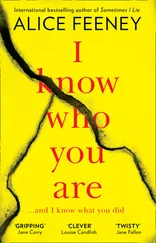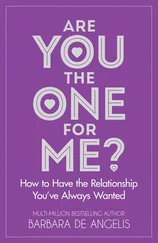“Come with me,” Sveta said, and led me on a cursory lap around the room.
“Oleg,” she said, indicating a heavy-lidded man playing solitaire on his computer. He held his cigarette in one hand and operated his mouse with the other. “He is art director.” Oleg squinted at me, then returned to his game.
“This is Svetlana,” she said as we passed a desk occupied by a plump, rosy woman in a green satin blouse. “She is bookkeeper. There are three Svetlanas in our company,” she added.
“Volodya,” she said about a lumpen figure in a sweater vest. He was bent over his desk reading a newspaper.
Then she marched to an empty desk in the center. She pulled an extra chair up next to her own and patted the seat, encouraging me. I sat.
“I am copywriter,” she said. She handed me a business card. The word “copywriter” had been transliterated into Cyrillic: 
“That’s the word in Russian?”
She nodded. It was one of many English words and phrases that had infected the language. Restaurants all over Moscow now offered a business lunch or, as the menus said in Russian,  (“biznes lanch”).
(“biznes lanch”).
“I studied architecture,” said Svetlana. “But you know, now the only decent jobs are at foreign companies.”
“So you write ads?”
She nodded vigorously. “Why not? You think I cannot?”
“I didn’t say that.”
She lit a cigarette. Then she pointed at a framed poster on the opposite wall. It was a picture of the New York City skyline, with a giant Lucky Strike pack hovering above the Twin Towers. There was some kind of slogan in Russian on it. I sounded out the Cyrillic in my head.
“Does that say ‘The American Dream’?” I said.
Sveta nodded. “Yes. To advertise Lucky Strike, we sell USA.”
“And it works?”
“When Western brands came to Russia for first time, it was exciting. McDonald’s, Nike, Levi’s, Marlboro. People could not wait to buy. It was—how do you say in English?—status sign?”
“Status symbol.”
“ Tochno. Status symbol.”
I’d seen the lines outside the first McDonald’s on TV. It was crazy to imagine waiting hours for a Big Mac.
“Everyone wanted to taste USA. It was cool. It was taste of freedom. All you had to do was say something was American or British and people would get in the line to buy it. Bozhe moy! The long lines for the free samples of Colgate toothpaste and Tampax. You know Tampax?”
“Too well,” I said. All the smoke was making my eyes water. I surveyed the room. One Russian man I hadn’t seen before looked about my age and was surprisingly preppy. He wore a blue oxford shirt marked with a Ralph Lauren polo pony. I smiled weakly at him and coughed.
“And now the attitudes start to change,” Sveta continued. “People are tired of America. We were superpower and now? Our country is taking money from IMF? People abroad think our stores are empty, that no one has the bread to eat. People think Mother Russia is broken. Yeltsin is always drunk. He is the big joke. People are ready for Russia to rise up and become the superpower again.” She seemed to be directing her aggression toward me.
“The Cold War is over,” I said defensively.
“Da.” She was emphatic. “But Russia is still great country. Russia is member of UN Security Council. Russia is champion. I am proud to be Russian. People want to be proud to be Russian. They do not want the shame.”
“Of course not.”
“During Communism we had no choice. We bought what there was. Now we have choice, so people want best quality. And the goods from the West were better quality. Better cigarettes, better toothpaste, better shampoo, better tennis shoes, and so on. Now: We must to make Russian products better. New standards. Competition. And so: Why must I smoke Marlboro if I want the quality tobacco? Why not Russian brand? Why must I drink Pepsi if I want the quality cola?”
She held out a can for me. It was white with a red-and-blue logo; at first glance I thought it was a Pepsi. But on closer inspection, I realized that the logo said CZAR. The letters were in Russian on one side, in English—in a font reminiscent of old Soviet posters—on the other.
“Czar?” I said.
“Our newest account,” said a British voice. “We’re spelling ‘tsar’ with a z because it’s more dynamic.”
The voice belonged to the bearded guy I’d seen through the glass of the director’s office, the one who had been smiling on the phone. He was deflated and paunchy.
Svetlana stood at attention. “Richard, this is the American friend which I told you about. Sarah, this is my boss, Richard.”
“I’m the creative director here at DDBD Moskva,” he said, and rested his fists on his hips, in the ready posture of a superhero. I stood to shake his hand. His fingers were doughy and stained with ink.
“Svetlana here is a real go-getter,” he said. “A real asset to our team.”
Svetlana beamed like a teacher’s pet.
“Taste it,” said Richard, indicating the can in my hand. “I think you’ll find it surprisingly good.”
The can was warm, but there was no point asking for ice. Russians didn’t put ice in their beverages. I popped the lid; the whoosh of released carbonation was convincing. It sounded as authentically American as Coca-Cola. I took a sip. It was sweeter than Coke—sweeter than Pepsi, even—with a metallic aftertaste that made me think of blood.
“Tasty, yes?” said Sveta.
“Ochen,” I lied. Very.
“The brand won’t launch for another year, but it’s going to be brilliant. Finally a Russian cola that is good enough to compete with the Americans.” Richard seemed more than a little eager to defeat the Americans.
I didn’t tell him that I was half British. I was tempted to remind him that he worked for an American company but decided to steer the conversation out of nationalist waters. “Who are your other clients?” I said.
Richard was delighted to talk about the agency. They had opened its Moscow office in 1994. It was a joint venture with a Russian company. There was an American managing director, he said—“Mike is in New York this week”—and a Russian MD, who sat in the office with the blinds drawn. Their biggest clients were P&G and British American Tobacco. Svetlana lit another cigarette.
“We’re growing fast,” Richard said.
I took another sip of Czar. It was tolerable but still tasted like a knockoff. It was like those designer-perfume impostors from the 1980s. If you like Coke, I thought , you’ll love Czar.
Richard burrowed a finger into his beard. His voice assumed the patronizing tone of a commencement speaker. He’d started in the London office but had worked for years in New York, and most recently in Prague, so he said he really knew the Eastern European market. Advertising, he said, was a wonderful business. A creative business. But this office was a special challenge, since advertising was a new concept in Russia. There were three expats in the office: two Americans, one Brit. The expats had a lot of industry experience, he said, and had been hired to teach the local staff how to run an agency. “The Russians don’t know the first thing about marketing. They don’t know about initiative. About competition. Or about hard work. We’re teaching them how to be creative. How to be professional.” He said all this in front of Sveta and in earshot of her Russian colleagues, and more than a few jaws clenched in response. Oleg the solitaire player looked especially vexed.
Читать дальше


 (“biznes lanch”).
(“biznes lanch”).










